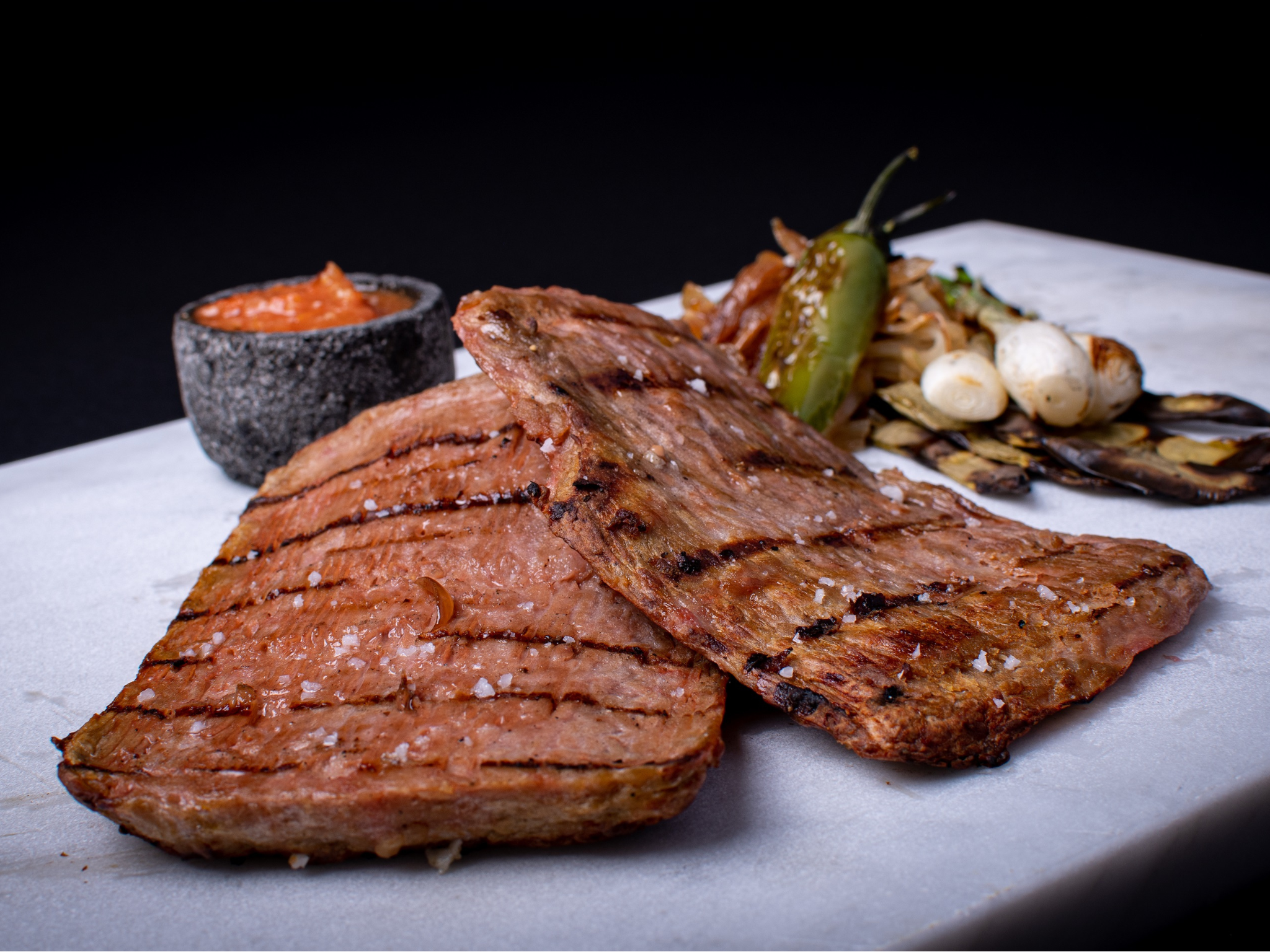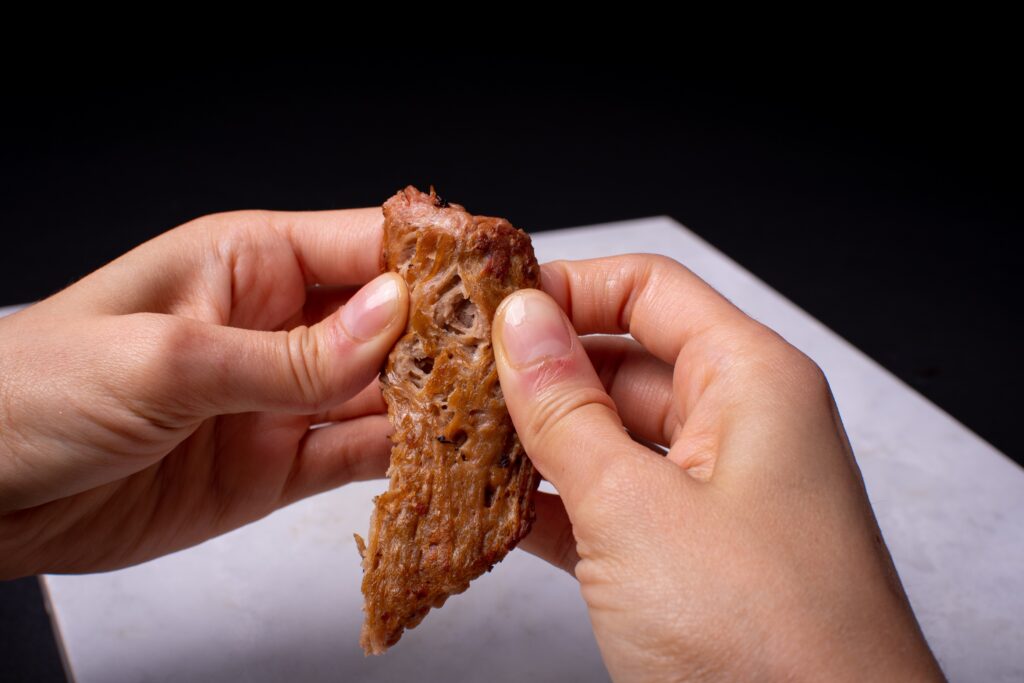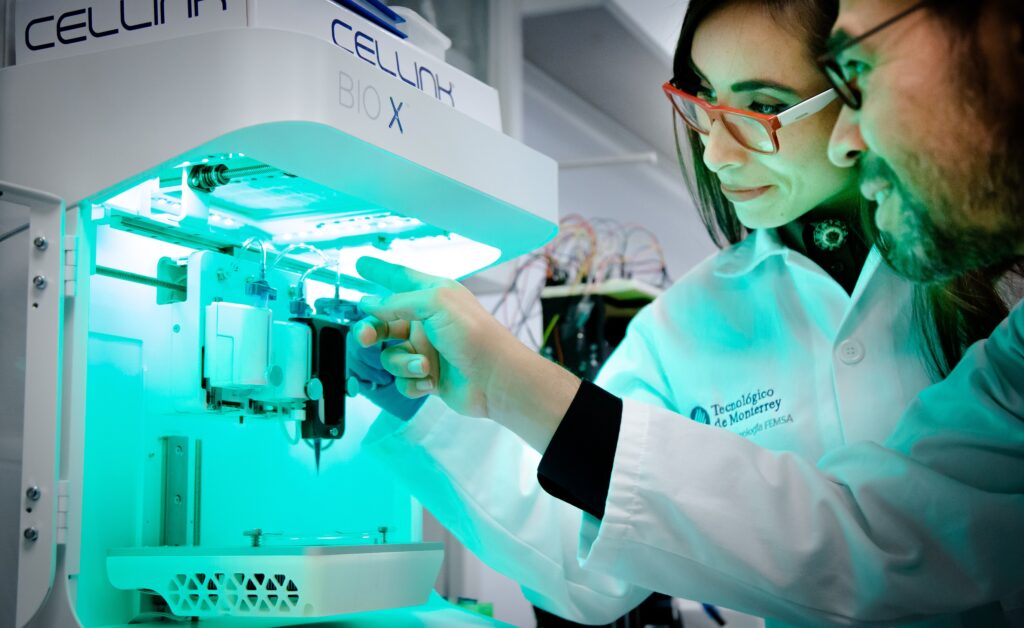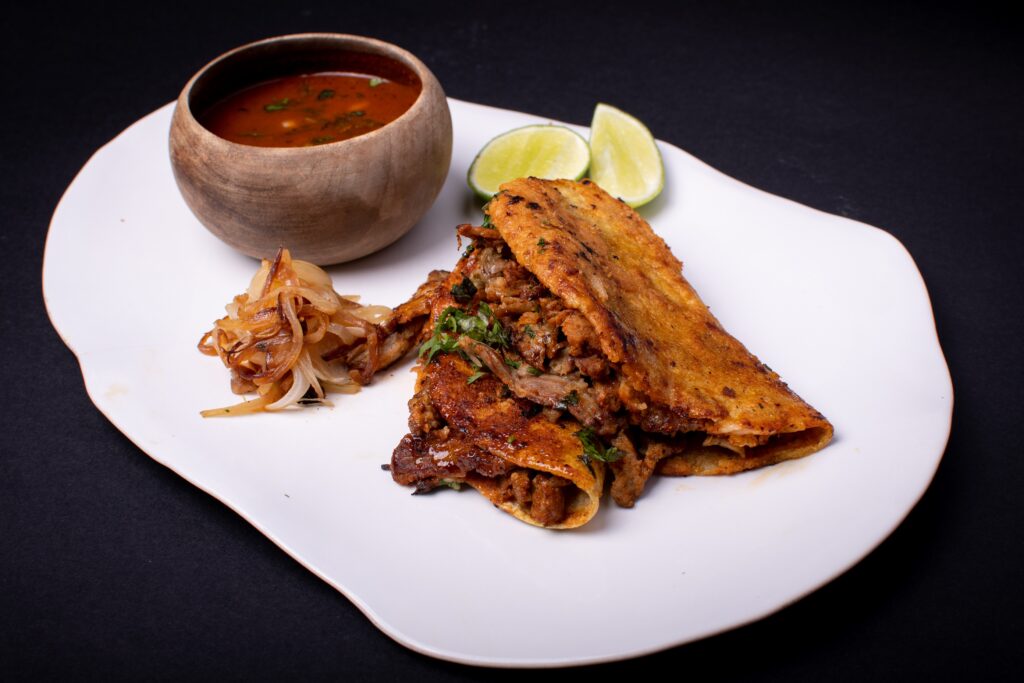
Mexico’s Forma Foods is making whole-cut plant-based meat using a 3D printing technique that has impressed Michelin-starred chefs.
What started as a bioprinting firm in 2017 has turned into a full-fledged food tech startup, leveraging its chaotic printing technology to address consumer pain points about the texture of meat analogues.
For 75% of people around the world, the texture of plant-based meat is as important as its animal-derived counterparts – but only about 60% are actually satisfied with it.
In Mexico City, Forma Foods is hoping to give consumers the mouthfeel they want from these products based on a technology that doesn’t just replicate animal muscle fibres, but also adipose and connective tissues, resulting in a well-rounded textural experience for the consumer.
The startup’s beef analogues have impressed investors as well as chefs alike, landing on the menu of Rodrigo Rivera-Rio’s Koli, a recent recipient of a Michelin star. “It’s a protein, obviously, made with all the most cutting-edge technology in a laboratory,” the chef told TecScience in June. “It’s from Monterrey, it’s regia cuisine.”

How Forma Foods developed its chaotic printing technology
Forma Foods was founded on the back of years of research by Grissel Trujillo de Santiago and Mario Moises Alvarez during their time at Tecnologico de Monterrey. With biotech engineer Li Lu Lam Aguilar joining as co-founder and CEO, the tissue engineering experts initially explored cultivated meat, but pivoted to plant proteins due to the much higher costs involved.
Its chaotic printing technology produces microstructures that mirror the architecture of animal tissues via the use of plant-based pastes: pea protein helps simulate muscle tissue, coconut oil mimics fat tissue, and prebiotic fibre from an Oriental root replicates connective tissue.
“The term ‘chaotic’ might seem counterintuitive, as it’s often associated with disorder,” admits Alvarez, the firm’s CTO. “But in mathematics and physics, chaotic flows are known for their ability to create intricate, highly ordered microstructures efficiently.”
The development of a now-patented specialised printhead in 2019 allowed the company to overcome the challenge of adapting 3D printing to produce meat analogues. “We use static mixers within our printheads to generate chaotic flows, enabling us to produce detailed microarchitecture within each filament. This innovative method allows us to recreate the complex texture of meat in a cost-effective and scalable way,” Alvarez explains.
“Our printing technology replicates the architecture and texture of real meat by precisely organising different components – protein fibres, fat, and connective tissue – at a microscopic scale,” he adds. “In real meat, these elements are not mixed randomly – they are aligned and structured, which gives the meat its distinctive texture. Similarly, we print multi-material filaments that emulate these components.
“While other plant-based meat producers typically create ‘ground meat’ products where all the ingredients are mixed and lack the fibrous structure of real meat, our approach coextrudes three different materials through the same nozzle, achieving a microstructure that mimics the natural alignment of meat at the micron level.”

Forma Foods outpaces a cow by a factor of 100
Forma Foods has created plant-based versions of arrachera (skirt steak) and carne al pastor (grilled pork) to appeal to local palates. After all, more than half (54%) of Mexicans are swapping meat for plant-based analogues.
In 2022, a study suggested that 9% of the country’s population was vegan, another 19% vegetarian, and 15% identified as flexitarian – making it the largest plant-forward market in Latin America. Even Taylor Swift recognised this, offering Propel Foods’s vegan Bistec steak, Chorizo and Pastor tacos to Eras Tour visitors at the Foro Sol stadium in the capital last year.
As proof of its product potential, Forma Foods has raised over $1M in funding from Tec Ventures and Saya Bio. “We are seeking additional funding to accelerate the development and scaling of our technology,” says Alvarez.
Each of the company’s printers can currently produce 1.8kg of its beef per hour, a rate around 100 times speedier than the time it takes to raise a cow. “Our overall annual production is still limited, as we only have a small number of printers in operation (we design and build our own 3D printers),” he reveals.
“However, our technology is easily scalable by simply adding more printers, which will significantly increase our production capacity to tonnes per month by mid-2025,” notes Alvarez. Another milestone would be reducing the costs of the final product. “Our current market price is above that of traditional beef, but we aim to achieve price parity by 2026,” he adds.

The startup has outlined a three-pronged strategy as part of its development plan: gain consumer trust, establish strategic partnerships in the market, and offer products that are unique and innovative. On that note, it’s been in talks with some foodservice customers, and currently supplies three cuts of its 3D-printed meat for special events at Tecnológico de Monterrey.
At Koli, Rivera-Rio served its beef as part of a conceptual dish. The story goes: as one beet watched cows eating other beets, it felt lonely and decided to become beef itself. To visualise this, he requested Forma Foods to shape its meat analogue in the form of a beetroot, pairing it with a beet sauce.
“I think it would be very interesting to keep this as an ongoing dish in the menu: the vegetable that wanted to be meat,” the chef said, hinting at an ongoing collaboration with the startup. “This season it would be beet, next it could be a carrot. It can be a thousand things.”
“Looking ahead, we plan to expand into retail stores across Mexico, particularly those specialising in vegan and health-conscious products,” says Alvarez. “We expect this rollout to happen at the beginning of 2025.”
The post Forma Foods Unveils ‘Chaotic’ 3D Printing Tech for Michelin-Starred Vegan Beef appeared first on Green Queen.
This post was originally published on Green Queen.